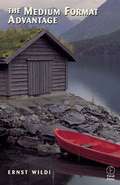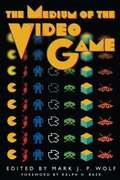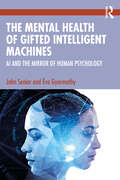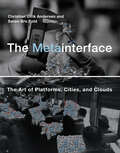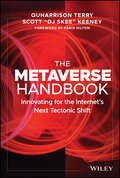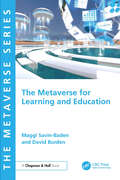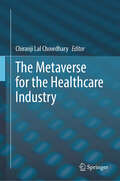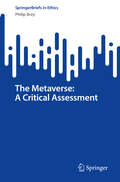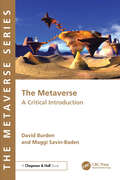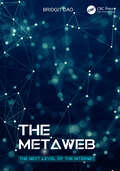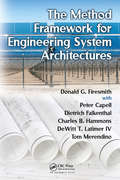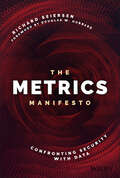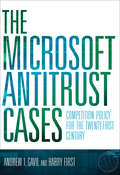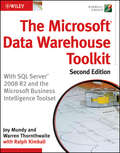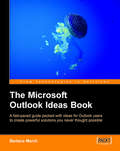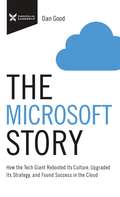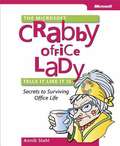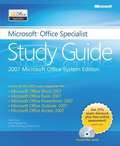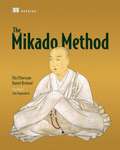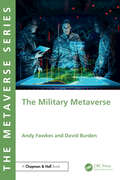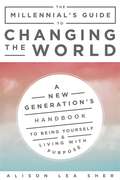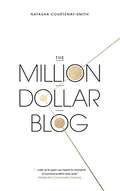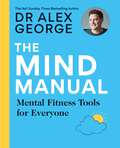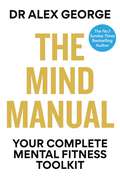- Table View
- List View
The Medium Format Advantage
by Ernst WildiLearn the advantages and capabilities of medium-format cameras and examine all aspects of medium-format operations, including SLR, twin lens, panoramic, rangefinder, wide angle, press, and view cameras. Also explained and illustrated are lenses and their accessories, motor drives, films, flashes, filters, slides and slide projectors, and more. Includes black and white and color photographs and drawings to illustrate proper use of equipment and various techniques, effects, and possibilities that produce successful photographs with the best possible image quality. The medium format is truly the format in the middle. It combines many of the benefits of 35 mm photography with those of the large format, making a medium format system an excellent choice for almost all types of photography from candid action with a hand-held camera to critical studio work from a tripod. Special chapters are devoted to these different applications and the type of equipment that most likely meets your photography needs. This book explains clearly the medium format's benefits, advantages, and disadvantages and provides a comparison of the medium format to other formats so you can decide whether it is right for you and your photography.
The Medium of the Video Game
by Mark J. P. WolfOver a mere three decades, the video game has become the entertainment medium of choice for millions of people, who now spend more time in the interactive virtual world of games than they do in watching movies or even television. The release of new games or game-playing equipment, such as the PlayStation 2, generates great excitement and even buying frenzies. Yet, until now, this giant on the popular culture landscape has received little in-depth study or analysis. In this book, Mark J. P. Wolf and four other scholars conduct the first thorough investigation of the video game as an artistic medium. The book begins with an attempt to define what is meant by the term ""video game"" and the variety of modes of production within the medium. It moves on to a brief history of the video game, then applies the tools of film studies to look at the medium in terms of the formal aspects of space, time, narrative, and genre. The book also considers the video game as a cultural entity, object of museum curation, and repository of psychological archetypes. It closes with a list of video game research resources for further study.
The Mental Health of Gifted Intelligent Machines: AI and the Mirror of Human Psychology
by John Senior Éva GyarmathyThe Mental Health of Gifted Intelligent Machines explores the increasingly sophisticated behaviours of developing AI and how we can ensure it will have emotional resilience, ethical strength and an ability to think in a new and enhanced way. Its primary aim is to change how we understand the world by investigating humanity as an intelligent being, examining and contrasting human and artificial intelligence. The book considers what we can learn from the likely mental health issues that will occur with increasingly sophisticated aspects of machine intelligence and how they will reflect the human condition. It asks questions about our identity in a deeply uncertain and disruptive ever-changing world; how we will improve and enhance our psychological intelligence to meet the increasing complications and demands of the future; and what we need to do, now, to be psychologically intelligent enough to live a full meaningful life in a new world evolving around us. The book argues that changes in our understanding of mental health, psychology and our view of intelligence will challenge huge aspects of our fundamental beliefs and assumptions and that it is essential we explore new arenas to further understand both our own human psychological issues and mental health as we develop gifted intelligent machines. It is a must read for all students, researchers and professionals involved with AI, gifted education, consciousness and mental health.
The Metainterface: The Art of Platforms, Cities, and Clouds (The\mit Press Ser.)
by Christian Ulrik Andersen Soren Bro PoldHow the interface has moved from the PC into cultural platforms, as seen in a series of works of net art, software art and electronic literature.The computer interface is both omnipresent and invisible, at once embedded in everyday objects and characterized by hidden exchanges of information between objects. The interface has moved from office into culture, with devices, apps, the cloud, and data streams as new cultural platforms. In The Metainterface, Christian Ulrik Andersen and Søren Bro Pold examine the relationships between art and interfaces, tracing the interface's disruption of everyday cultural practices. They present a new interface paradigm of cloud services, smartphones, and data capture, and examine how particular art forms—including net art, software art, and electronic literature—seek to reflect and explore this paradigm.Andersen and Pold argue that despite attempts to make the interface disappear into smooth access and smart interaction, it gradually resurfaces; there is a metainterface to the displaced interface. Art can help us see this; the interface can be an important outlet for aesthetic critique. Andersen and Pold describe the “semantic capitalism” of a metainterface industry that captures user behavior; the metainterface industry's disruption of everyday urban life, changing how the city is read, inhabited, and organized; the ways that the material displacement of the cloud affects the experience of the interface; and the potential of designing with an awareness of the language and grammar of interfaces.
The Metaverse Handbook: Innovating for the Internet's Next Tectonic Shift
by QuHarrison Terry Scott "DJ KeeneyThe metaverse is here. Are you ready? In The Metaverse Handbook: Innovating for the Internet's Next Tectonic Shift, a duo of experienced tech and culture experts delivers a can't-miss guide to participating in the most promising new technology since the advent of the web. Through dozens of metaverse creator case studies and concise, actionable insights, you'll walk away from this book understanding how to explore and implement the latest metaverse tech emerging from blockchain, XR, and web3. In The Metaverse Handbook, you'll discover: What the metaverse is, why you should care about it, and how to build your metaverse strategy The history of the metaverse and primers on critical technologies driving the metaverse, including non-fungible tokens, XR, the blockchain, and web3 How to unearth unique metaverse opportunities in digital communities, commerce, and immersive experiences As the metaverse has rapidly become the technology platform and marketing buzzword of the future, this new reality for companies, creators, and consumers is not easily understood at the surface level. Those who aim to be at the forefront of this exciting new arena must first understand the foundations and central technologies of the metaverse. An essential resource for digital professionals, creators, and business leaders in the vanguard of the coming technology revolution, The Metaverse Handbook provides the go-to roadmap for your journey into the metaverse.
The Metaverse for Learning and Education
by Maggi Savin-Baden David BurdenAccompanying The Metaverse: A Critical Introduction in CRC Press’ new The Metaverse Series, this book explores the ways in which the Metaverse can be used for education and learning, as well as how it is different from virtual reality (VR) application development. For example, institutions and tutors can make use of the Metaverse space to represent themselves in it or create their own content and share experiences, whilst students can access a wider range of material, learn within appropriate settings and create content to support their own and others’ learning.Key Features:• Provides practical advice from the authors’ collective three decades of work and experience in VR and Metaverse learning and education.• Examines different approaches to learning that are relevant in a VR and Metaverse context, including theoretical and practical approaches to pedagogy.• Suggests different approaches to learning that might be used and explores learning in practice in the metaverse – from early versions such as computer-supported collaborative learning and action learning through to more recent practices such as games and gamification and the use of problem-based learning in virtual worlds.• Examines a number of advantages of learning in the metaverse such as the opportunity to be inclusive towards different approaches to learning, the value of affordances, peer-to-peer learning and genres of participation.This book is aimed primarily at practitioners in the learning and education field, and those who set policy and commission work. It may also be of interest to parents, managers, other interested professionals, students, researchers and lay readers.
The Metaverse for the Healthcare Industry
by Chiranji Lal ChowdharyThis book delves into the transformative potential of the Metaverse in the healthcare industry, addressing the challenges and opportunities presented by diverse biomedical data and digital healthcare solutions. The book explores how the convergence of technologies like Artificial Intelligence, Augmented Reality, and Virtual Reality can revolutionize healthcare delivery, enhancing patient outcomes and medical education. Chapters cover topics such as the fundamentals of the Metaverse in healthcare, intelligent healthcare systems architecture, ethical considerations, and the integration of IoT devices. Case studies and real-world applications showcase the Metaverse's role in disease prevention, mental health treatment, medical education, and elderly care, offering valuable insights for researchers, practitioners, and professionals in AI, digital health, and healthcare informatics. Designed as a comprehensive reference for academia, research institutions, and healthcare organizations, the book aims to guide the ethical integration of Metaverse technologies into the healthcare ecosystem to unlock their full potential while ensuring patient privacy and security.
The Metaverse: A Critical Assessment (SpringerBriefs in Ethics)
by Philip BreyThis book offers an extensive assessment of the nature and feasibility of the metaverse and is the first to critically examine its social and ethical implications. The metaverse is, in essence, an envisioned future merger of virtual and augmented reality (VR and AR) and the internet, enabling real-time immersive interaction and activities like work, play, socializing, and entertainment. Major tech companies like Meta, Microsoft, Apple and NVIDIA have been investing billions in metaverse technologies, with generative AI accelerating progress. This book examines how these efforts could culminate in the metaverse, exploring its potential forms, implications, and the social and ethical challenges it may pose—along with recommendations for responsible innovation. The book is aimed at stakeholders shaping the metaverse—developers, creators, investors, business leaders, and thought leaders in technologies like VR, AR, Web3, blockchain, and AI. It also serves scholars and students in applied ethics, the social sciences, and the humanities, including fields such as media studies, psychology, and law. General readers interested in the metaverse and emerging technologies will find it both accessible and engaging. Endorsements: "In this book, the talented and eloquent philosopher Philip Brey carefully explains the history and ideas behind the metaverse, and the prospects for its further development and adoption. That detailed information, meticulously presented, makes this a valuable read. But that is just the start. In later chapters, Brey just as skillfully describes the opportunities and vulnerabilities that a metaverse is likely to generate. These chapters are thorough, precise, and offer profound insights into our possible futures. Some of the possibilities are exciting. Others are frightening." –Keith W. Miller, University of Missouri–St. Louis.
The Metaverse: A Critical Introduction
by Maggi Savin-Baden David BurdenThe Metaverse: A Critical Introduction provides a clear, concise, and well-grounded introduction to the concept of the Metaverse, its history, the technology, the opportunities, the challenges, and how it is having an impact on almost every facet of society. The book serves as a stand-alone introduction to the Metaverse and as an introduction to the range of topics that will be covered by the specialist volumes in The Metaverse Series.Key Features: a concise history of the Metaverse idea and related implementations to date; an examination of what the Metaverse actually is; an introduction to the fundamental technologies used in the Metaverse; an overview of how the different uses and aspects of the Metaverse are having an impact on our lives across multiple disciplines and social contexts; a consideration of the opportunities and challenges of the evolving Metaverse; and a sense of how the Metaverse may mature over the coming decades. This book is a primer and Metaverse reader, drawing on academic research and practical and commercial experiences and taking inspiration from the science fiction origins and treatments of the Metaverse. The book explores the use of the increasing number of virtual worlds and proto-Metaverses which have existed since the late 1990s and includes a critical consideration of recent developments in cryptoworlds and mixed reality. The aim is to provide professional and lay readers, researchers, academics, and students with an indispensable guide to what counts as a metaverse, the opportunities and challenges, and how the future of the coming Metaverse can best be guided.
The Metaweb: The Next Level of the Internet
by Bridgit DAOBuckle up for a fascinating journey through layers of insight and metaphors that explain the past, present, and future of the Web. Readers from all walks of life will learn something ancient, something novel, and something practical. Those who give it careful consideration will never see the Web the same way again. This book proclaims into existence decentralized public space above the webpage that enables the shift from personal to collective computing. The Web's next frontier is the Metaweb, a hyper-dimensional web over Today's Web that connects people and information silos, with accountability and fair value exchange. The Metaweb can drastically reduce false information, abuse, and scams, as well as enable the unprecedented level of collaboration needed to address humanity's global challenges. The book posits a symbiotic relationship between AI and the Metaweb, where AI assists in generating, organizing, and curating content, while the Metaweb provides the necessary constraints, data, and context for AI to function effectively, transparently, and in alignment with humanity. The AI-assisted collaboration among humans on the Metaweb will enable a vast collective intelligence and the capture of tremendous untapped value. For more information go to: http://metawebbook.com
The Method Framework for Engineering System Architectures
by Donald G. Firesmith Peter Capell Dietrich Falkenthal Charles B. Hammons DeWitt T. Latimer IV Tom MerendinoOffering a practical way to generate effective and efficient project-specific system architecture engineering methods, this volume addresses the entire range of systems architecture including hardware, software, subsystems, and systems of systems. It defines a set of architectural roles and teams and provides a repository of reusable architectural engineering process components to develop high-quality system architectures. It examines a cohesive set of tailorable tasks and components steps for producing associated architectural work products and establishes a recommended set of industry best practices for engineering the architecture of software-intensive systems.
The Metrics Manifesto: Confronting Security with Data
by Richard SeiersenSecurity professionals are trained skeptics. They poke and prod at other people’s digital creations, expecting them to fail in unexpected ways. Shouldn’t that same skeptical power be turned inward? Shouldn’t practitioners ask: “How do I know that my enterprise security capabilities work? Are they scaling, accelerating, or slowing as the business exposes more value to more people and through more channels at higher velocities?” This is the start of the modern measurement mindset—the mindset that seeks to confront security with data. The Metrics Manifesto: Confronting Security with Data delivers an examination of security metrics with R, the popular open-source programming language and software development environment for statistical computing. This insightful and up-to-date guide offers readers a practical focus on applied measurement that can prove or disprove the efficacy of information security measures taken by a firm. The book’s detailed chapters combine topics like security, predictive analytics, and R programming to present an authoritative and innovative approach to security metrics. The author and security professional examines historical and modern methods of measurement with a particular emphasis on Bayesian Data Analysis to shed light on measuring security operations. Readers will learn how processing data with R can help measure security improvements and changes as well as help technology security teams identify and fix gaps in security. The book also includes downloadable code for people who are new to the R programming language. Perfect for security engineers, risk engineers, IT security managers, CISOs, and data scientists comfortable with a bit of code, The Metrics Manifesto offers readers an invaluable collection of information to help professionals prove the efficacy of security measures within their company.
The Microsoft Antitrust Cases: Competition Policy for the Twenty-first Century (The\mit Press Ser.)
by Harry First Andrew I. GavilA comprehensive account of the decades-long, multiple antitrust actions against Microsoft and an assessment of the effectiveness of antitrust law in the digital age. For more than two decades, the U.S. Department of Justice, various states, the European Commission, and many private litigants pursued antitrust actions against the tech giant Microsoft. In investigating and prosecuting Microsoft, federal and state prosecutors were playing their traditional role of reining in a corporate power intent on eliminating competition. Seen from another perspective, however, the government's prosecution of Microsoft—in which it deployed the century-old Sherman Antitrust Act in the volatile and evolving global business environment of the digital era—was unprecedented.In this book, two experts on competition policy offer a comprehensive account of the multiple antitrust actions against Microsoft—from beginning to end—and an assessment of the effectiveness of antitrust law in the twenty-first century. Gavil and First describe in detail the cases that the Department of Justice and the states initiated in 1998, accusing Microsoft of obstructing browser competition and perpetuating its Windows monopoly. They cover the private litigation that followed, and the European Commission cases decided in 2004 and 2009. They also consider broader issues of competition policy in the age of globalization, addressing the adequacy of today's antitrust laws, their enforcement by multiple parties around the world, and the difficulty of obtaining effective remedies—all lessons learned from the Microsoft cases.
The Microsoft Data Warehouse Toolkit
by Joy Mundy Ralph Kimball Warren ThornthwaiteBest practices and invaluable advice from world-renowned data warehouse experts In this book, leading data warehouse experts from the Kimball Group share best practices for using the upcoming "Business Intelligence release" of SQL Server, referred to as SQL Server 2008 R2. In this new edition, the authors explain how SQL Server 2008 R2 provides a collection of powerful new tools that extend the power of its BI toolset to Excel and SharePoint users and they show how to use SQL Server to build a successful data warehouse that supports the business intelligence requirements that are common to most organizations. Covering the complete suite of data warehousing and BI tools that are part of SQL Server 2008 R2, as well as Microsoft Office, the authors walk you through a full project lifecycle, including design, development, deployment and maintenance. Features more than 50 percent new and revised material that covers the rich new feature set of the SQL Server 2008 R2 release, as well as the Office 2010 release Includes brand new content that focuses on PowerPivot for Excel and SharePoint, Master Data Services, and discusses updated capabilities of SQL Server Analysis, Integration, and Reporting Services Shares detailed case examples that clearly illustrate how to best apply the techniques described in the book The accompanying Web site contains all code samples as well as the sample database used throughout the case studies The Microsoft Data Warehouse Toolkit, Second Edition provides you with the knowledge of how and when to use BI tools such as Analysis Services and Integration Services to accomplish your most essential data warehousing tasks.
The Microsoft Outlook Ideas Book
by Barbara MarchThis book takes a practical, hands-on approach to working with Microsoft Outlook. Carefully structured to lead you through all the steps of each examples, this book will help you to use Outlook in ways you never imagined possible. This book is for users who are comfortable with the basic functions of Outlook, but who want inspiration and direction on manipulating its features to produce powerful methods of viewing, presenting and reporting the wealth of information that it can hold. Users of Microsoft Access and Excel will recognize the functions and constructs used in some of the examples. The techniques in this book are applicable to all versions of Outlook from 2000 upwards. Where there are functional differences between the versions, these have been noted. You need to be running Outlook with MS Exchange Server to use this book
The Microsoft Story: How the Tech Giant Rebooted Its Culture, Upgraded Its Strategy, and Found Success in the Cloud (The Business Storybook Series)
by Dan GoodImagine if you could see the playbook that returned a struggling tech empire to the top of the tech leaderboard. The Microsoft Story will help you understand and adopt the competitive strategies, workplace culture, and daily business practices that enabled the tech company to once again become a leading tech innovator.<P><P>It wasn’t so long ago that Microsoft and its Windows operating system dominated the tech industry so much so that they faced antitrust charges for what was perceived by many to be predatory, monopolistic practices. Less than a decade later, the tide had turned and Microsoft lost its dominance in the personal tech marketplace amidst the launch of the iPhone, the rise of Google, and the cloud computing phenomenon. But, now, Microsoft is back on top. The company’s value is soaring and once again Microsoft is being recognized as a tech leader once again. What changed? <P><P>Since Satya Nadella took over as CEO, the company has gone through significant changes. The company culture has become one of creativity and innovation, no longer requiring that all products revolve around Windows. The company has reevaluated their business lines, getting rid of underperforming initiatives such as smartphones, and focused on the area of growth where the company excelled: the cloud. <P><P>Through the story of Microsoft, you’ll learn: How to build a nimble company culture that supports innovation and growth. How to return a forgotten brand to the spotlight. How to recognize and build upon successful business lines, while letting go of underperforming initiatives. When to change the entire way you do business. And much, much more.
The Microsoft® Crabby Office Lady Tells It Like It Is: Secrets to Surviving Office Life
by Annik StahlWe all have to work for a living--so why not make that time work for you? Whether you're in a cubicle or corner office, the Crabby Office Lady shows you how to be more productive on the job so that you can really enjoy your time off the job. Humorous but practical, the lovable know-it-all reveals her secrets in this easy-to-read survival guide based on her popular column. You'll get her no-nonsense lessons to succeeding at work, as well as tips and tricks for working with Microsoft Office programs to help simplify your life. She'll give you the straight scoop--so pay attention! Crabby says, "Listen up!"--and discover how to: Manage your daily barrage of email, run effective meetings, and delegate (you might actually get some work done) Mind your workplace manners (and learn to deal with those who don't) Use Crabby's secrets for preparing for performance reviews and building your case for raises Customize Office program settings, use accessibility features, and practice healthy ergonomics to make your office your own Decode convoluted computer terms Take the stress out of fleeing--and enjoy your time off--with Crabby's get-away-from-it-all checklist
The Microsoft® Office Specialist Study Guide
by Joan Preppernau Joyce CoxDemonstrate your expertise with the 2007 Microsoft Office system! This comprehensive study guide covers all the Microsoft® Office Specialist Study Guide exams for Microsoft Office, including Word 2007, Excel® 2007, Outlook® 2007, PowerPoint® 2007, and Access® 2007. For each exam, you'll build the skills and knowledge measured by its objectives through a series of step-by-step exercises, practice questions, and real-world scenarios. Easy-to-follow screen shots and explanations bring key concepts to life and expertly guide you through the material. The CD includes the practice files for all the book's lessons. Earn the premier credential and showcase your expertise in the popular Microsoft Office programs! A Note Regarding the CD or DVD The print version of this book ships with a CD or DVD. For those customers purchasing one of the digital formats in which this book is available, we are pleased to offer the CD/DVD content as a free download via O'Reilly Media's Digital Distribution services. To download this content, please visit O'Reilly's web site, search for the title of this book to find its catalog page, and click on the link below the cover image (Examples, Companion Content, or Practice Files). Note that while we provide as much of the media content as we are able via free download, we are sometimes limited by licensing restrictions. Please direct any questions or concerns to booktech@oreilly.com.
The Mikado Method
by Daniel Brolund Ola EllnestamSummaryThe Mikado Method is a book written by the creators of this process. It describes a pragmatic, straightforward, and empirical method to plan and perform non-trivial technical improvements on an existing software system. The method has simple rules, but the applicability is vast. As you read, you'll practice a step-by-step system for identifying the scope and nature of your technical debt, mapping the key dependencies, and determining the safest way to approach the "Mikado"—your goal.About the TechnologyThe game "pick-up sticks" is a good metaphor for the Mikado Method. You eliminate "technical debt" —the legacy problems embedded in nearly every software system— by following a set of easy-to-implement rules. You carefully extract each intertwined dependency until you expose the central issue, without collapsing the project.About the BookThe Mikado Method presents a pragmatic process to plan and perform nontrivial technical improvements on an existing software system. The book helps you practice a step-by-step system for identifying the scope and nature of your technical debt, mapping the key dependencies, and determining a safe way to approach the "Mikado"—your goal. A natural by-product of this process is the Mikado Graph, a roadmap that reflects deep understanding of how your system works. This book builds on agile processes such as refactoring, TDD, and rapid feedback. It requires no special hardware or software and can be practiced by both small and large teams.Purchase of the print book includes a free eBook in PDF, Kindle, and ePub formats from Manning Publications.What's InsideUnderstand your technical debtSurface the dependencies in legacy systemsIsolate and resolve core concerns while creating minimal disruptionCreate a roadmap for your changesAbout the AuthorsOla Ellnestam and Daniel Brolund are developers, coaches, and team leaders. They developed the Mikado Method in response to years of experience resolving technical debt in complex legacy systems.Table of ContentsPART 1 THE BASICS OF THE MIKADO METHODMeet the Mikado MethodHello, Mikado Method! Goals, graphs, and guidelinesOrganizing your workPART 2 PRINCIPLES AND PATTERNS FOR IMPROVING SOFTWARE Breaking up a monolith Emergent designCommon restructuring patterns
The Military Metaverse
by David Burden Andy FawkesThe Military Metaverse explores the impact that the Metaverse is having today on how the world's militaries procure, maintain, train, plan and fight, and how the Metaverse presents new challenges and opportunities for future conflict.The military were early adopters of Virtual Reality and Augmented Reality technologies and wider simulation systems. Before 2010 they were one of the few sectors that could afford the technology, and millions of military R&D dollars went into developing and understanding these technologies. However, as the democratisation of metaverse technologies has happened over the past decade there is a danger that militaries have been overtaken and caught short, encumbered with expensive legacy systems, sold and maintained by expensive prime contractors, whilst the gaming and consumer market has cheaper and more innovative and agile systems. The book provides a history of the use of metaverse technologies in the military, particularly in the areas of design, maintenance, training, planning and operations. It then examines the current state of the art in these areas and the opportunities that are available from the current generation of consumer-driven approaches. The drivers for, challenges to, and paths towards an enterprise approach to the Military Metaverse are then presented. The book explores the military use of social virtual worlds, of early work done by defence and security organisations in worlds such as Second Life, and how such environments could become important for intelligence as well as influence operations in the future. Finally, the book will consider what war in the Metaverse might look like, both in terms on in-world activities and the impact of cyber-war on the Metaverse itself.It should be of interest to all militaries across the world, the industries that support them, and those in academia and the wider public with an interest in the military and defence.
The Millennial's Guide to Changing the World: A New Generation's Handbook to Being Yourself and Living with Purpose
by Alison Lea SherA guide and blueprint to a purposeful millennial existence—and how we can make a difference. What does it mean to be a millennial in this chaotic world? Beyond Snapchat and Tinder, the consumerist culture we’ve inherited, and quarter-life crises, can a millennial aspire to more? Alison Lea Sher argues, yes, we can! Packing herself up in an RV, Sher embarks on a road trip in hopes of starting a conversation about what it means to grow up in America, post-Great Recession. Interviewing 150 of her millennial peers as they begin their adult lives—from kids heading straight to Wall Street after college to those sleeping on it—Sher asks: “Who are you; what should you do; and how can you step into your destiny as a stakeholder in society?” The Millennial’s Guide to Changing the World is a one-of-a-kind ethnographic study on the spotlighted millennial generation, as told by millennials—the largest generation in US history that is now transitioning from adolescence to adulthood. As millennials embark on a young adult quest during a frightening time, how can they enlist the idealism, values, and resistance politics they are so well-known for to discover a sense of self and purpose? Learn how to: “Adult”—and not in the way society defines itRide the technology revolution, instead of letting it ride youBe ethical, inclusive, and sex-positive in your relationshipsResist the corporate oligarchy we live inRecognize privilege, embrace diversity, and fight for equalitySave the earth, literally With intimate stories, ethnographic research, and practical tips, The Millennial’s Guide to Changing the World will inspire every young person, showing them how to optimize their coming-of-age potential in a world that desperately needs it.
The Million Dollar Blog
by Natasha Courtenay-SmithIn a world where everyone wants to blog and blog posts are ubiquitous, how do you stand out? How do you blog your way from nobody to somebody?How do you make money blogging, how do you start your own blogging business, and how do you, as a business owner, use content to build your brand and drive your success? What do the world's most successful bloggers know that you don't know (yet)? No matter who are you - a mum at home, a budding fashion blogger, a lifestyle blogger, a food blogger, a big business owner or a small business owner - The Million Dollar Blog is about blogging the smart way. It is the ultimate guide to:*Starting a successful blog*Blog writing*How to monetise your blog*How to develop a personal brand that grows your blog*How to blog for business*How to write*How take your existing blog to the next levelLearn to blog, learn to monetise your blog, discover how to build a successful blog for your business and hear the insider view from those in the blogosphere who are already making big incomes blogging. Plus, discover revenue streams beyond advertising and see how the income of million dollar bloggers is structured for maximum profit. Through a combination of practical advice and interviews with some of the world's most famous and successful bloggers, vloggers and content strategists, including Seth Godin, Lily Pebbles, Grant Cardone and Madeleine Shaw and dozens more, entrepreneur and digital strategist Natasha Courtenay Smith shows you how to build a blog that will increase your profile, create new opportunities, earn money and change your life. No wonder The Million Dollar Blog has been described by leading and award winning mummy blogger Vicky Psarias from Honest Mum as 'Brilliantly written, engaging and inspiring'.
The Mind Manual: Mental Fitness Tools for Everyone (Dr Alex George)
by Dr Alex GeorgeMental health matters! Learn how to assess your mental health today - and understand what's normal for you. Discover the seven universal truths that everyone should remember, and the mental fitness foundations that will boost you. And exercise your mind with the mental health toolkit that will help you thrive. Contents include -Part One: Your Mental Health Today-You are not alone-Know what feels normal for youPart Two: The Seven Universal Truths-Boundaries are beautiful-Mistakes are a must-havePart Three: Mental Fitness Foundations-It's good to talk-Why medical help mattersPart Four: Mental Health ToolkitResources
The Mind Manual: Mental Fitness Tools for Everyone (Dr Alex George)
by Dr Alex GeorgeMental health matters! Learn how to assess your mental health today - and understand what's normal for you. Discover the seven universal truths that everyone should remember, and the mental fitness foundations that will boost you. And exercise your mind with the mental health toolkit that will help you thrive. Contents include -Part One: Your Mental Health Today-You are not alone-Know what feels normal for youPart Two: The Seven Universal Truths-Boundaries are beautiful-Mistakes are a must-havePart Three: Mental Fitness Foundations-It's good to talk-Why medical help mattersPart Four: Mental Health ToolkitResources
The Mind Manual: Mental Fitness Tools for Everyone (Dr Alex George)
by Dr Alex GeorgeYour complete mental fitness toolkit by Dr Alex George'How are you? No really, how are you?'Learn how to assess your mental health today and understand what's normal for you.This is the mental health toolkit that will help you thrive.The Mind Manual is broken down into four parts with each one building on the last. Thegoal is to help you to establish your baseline, to know what peace feels like to you. Andthen to offer advice and tools to help you maintain that as much as possible.Part 1 looks at how to figure out where your baseline is and what normal feels like foryou. It's all about recognising your own needs so that you can best support yourselfwhen issues arise.Part 2 explores the seven universal truths and how they can support you when youmind is telling you lies. These seven truths are: Connection is your superpower; Sleepwill save you; Boundaries are beautiful; Mistakes are a must-have; Stress is the enemy;You are enough; Happiness is an inside job.Part 3 focuses on the foundations of mental fitness and explores the five different areasof life. These include what you eat and drink, how you release stress from your body,how much you move, how to talk out your thoughts and how to approach the medicalside of things.Part 4 is your mental health toolkit, where you'll find a wide range of worksheets andactivity tools to use. These can help while reading the book, but can also be usedregularly in your day-to-day life to check in on how you're coping.
